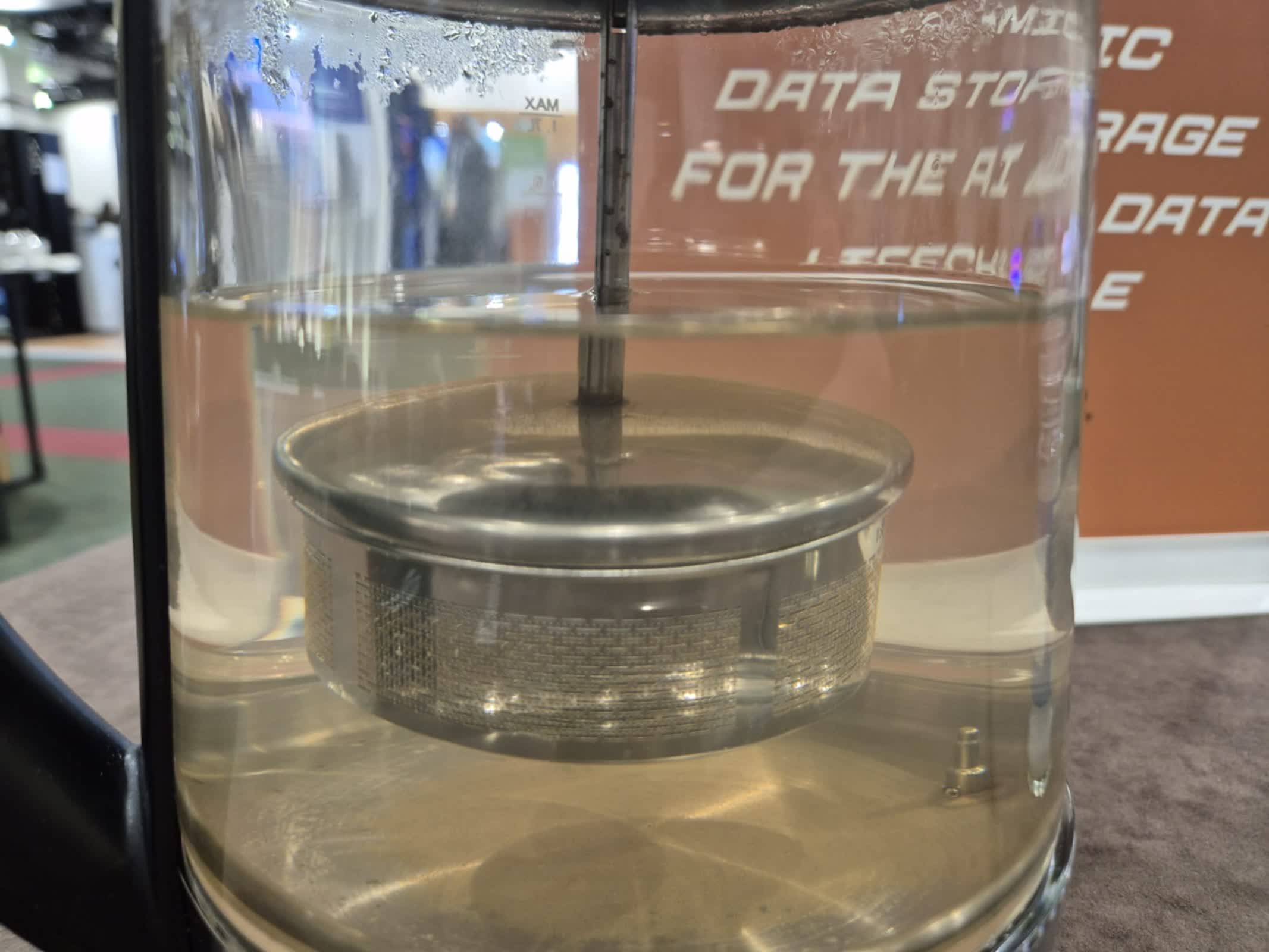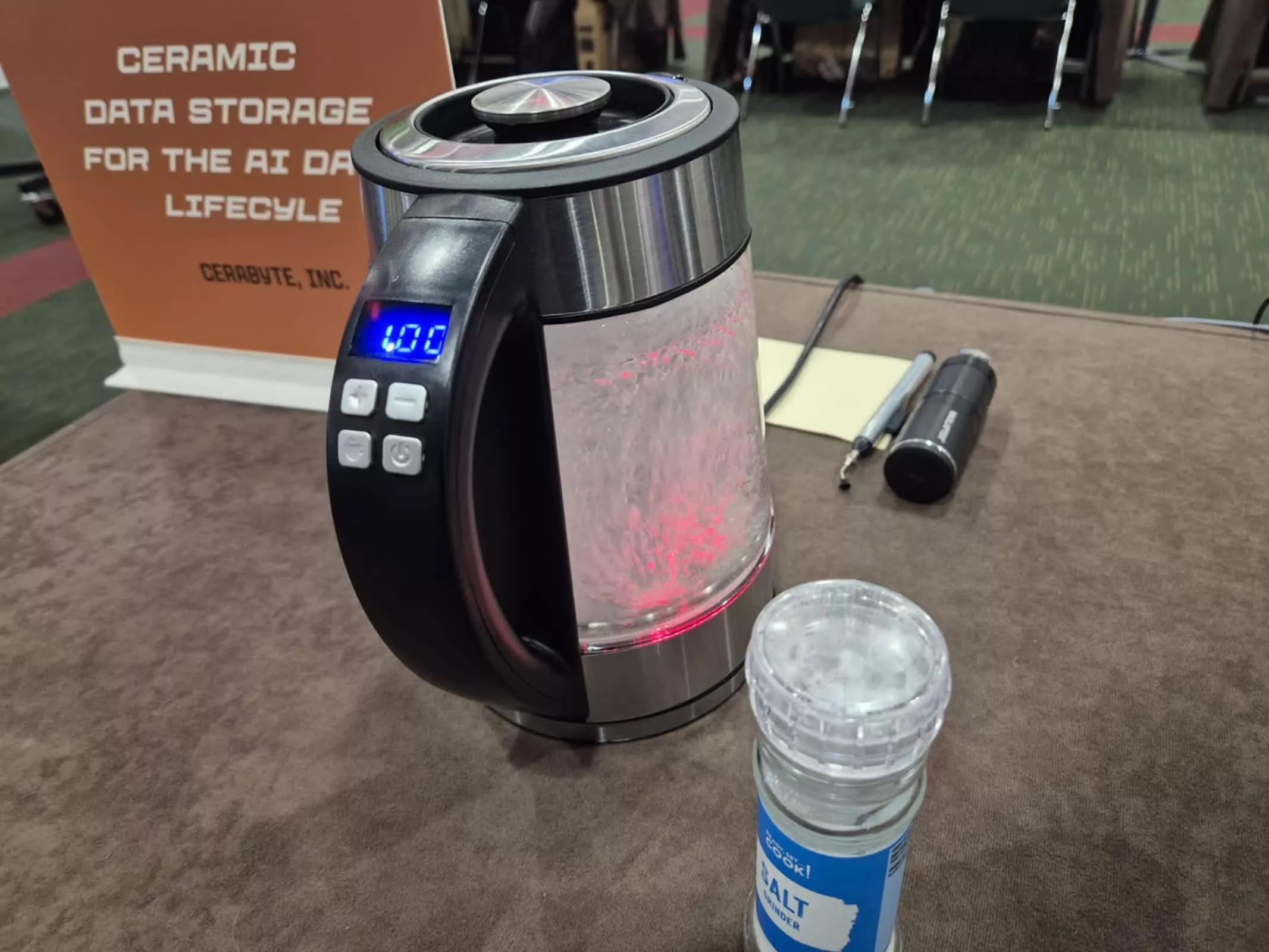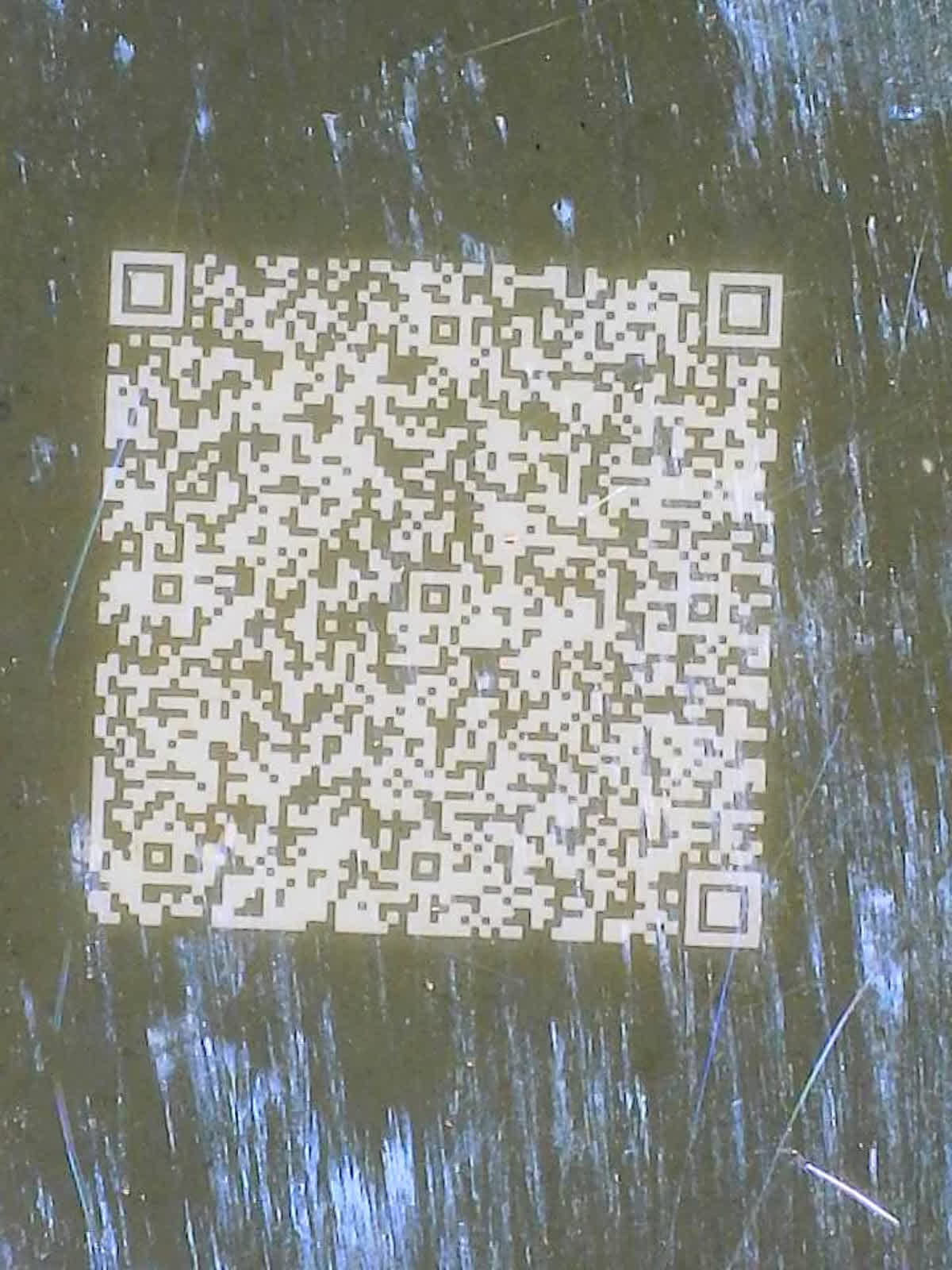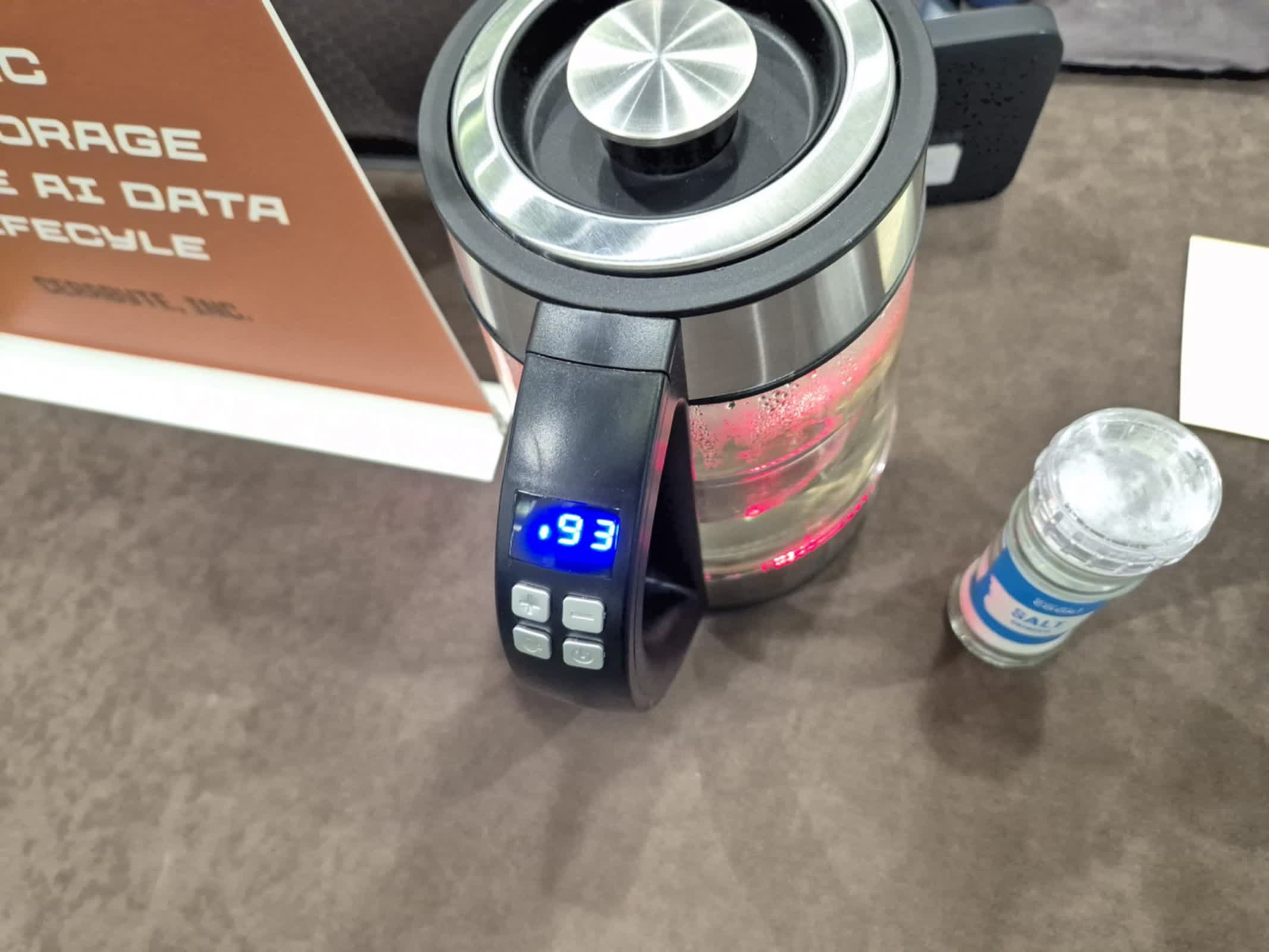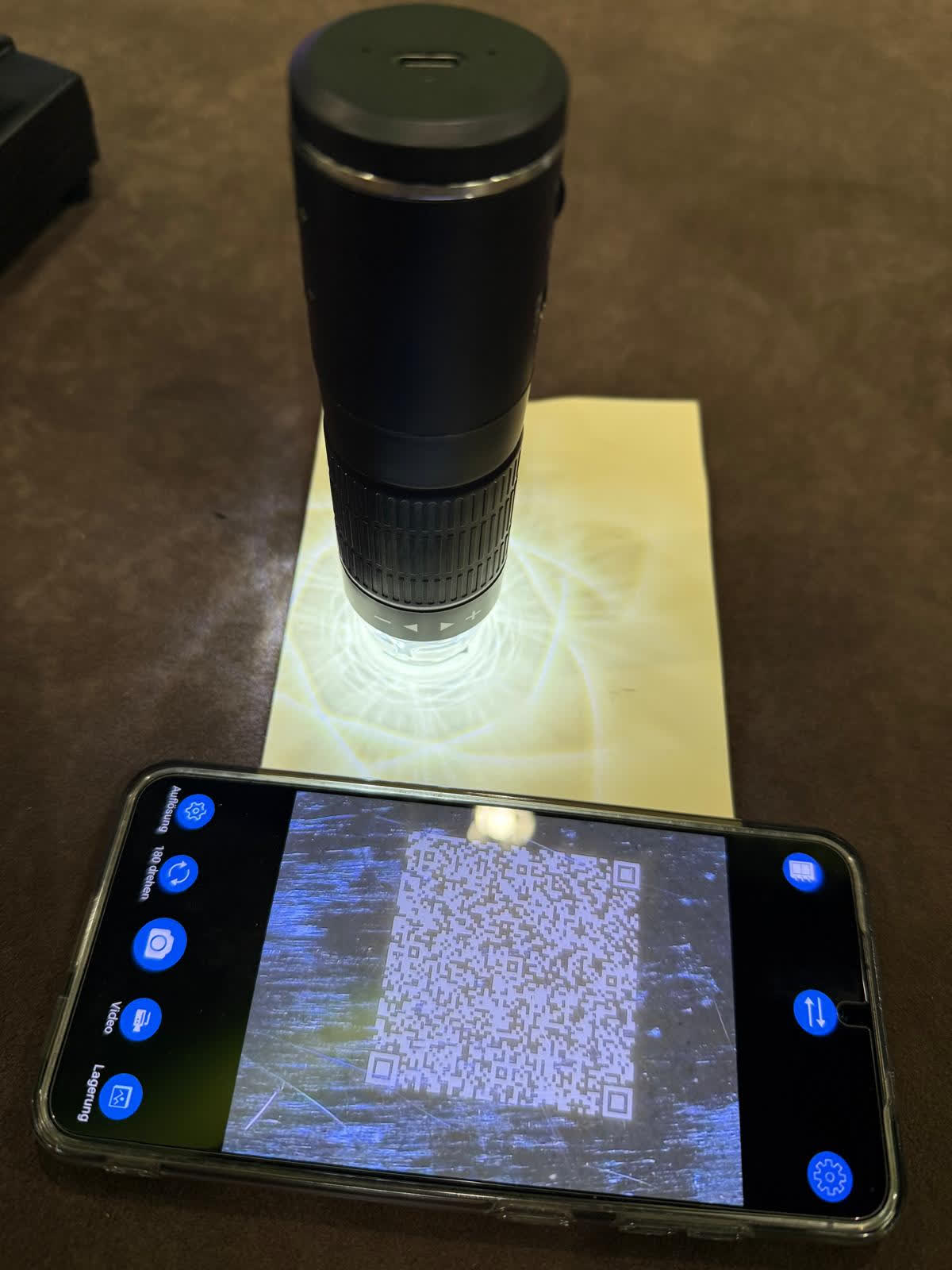Learn extra at:
Ahead-looking: Because the world faces an information tsunami, with most data destined for long-term storage, one know-how might provide a sustainable, low-maintenance different. Whether or not Cerabyte can ship on its promise of millennia-long sturdiness and ultra-low prices stays to be seen. Nonetheless, its boiling and baking exams have already raised the bar within the race for the way forward for knowledge storage.
Cerabyte just lately carried out an experiment that appeared more like a culinary exercise than a know-how showcase. The German storage startup plunged a sliver of its archival glass storage right into a kettle of boiling salt water, then roasted it in a pizza oven.
Regardless of enduring temperatures of 100°C within the kettle and 250°C within the oven, the storage medium emerged unscathed, with its knowledge totally intact. This experiment – together with an analogous live demonstration on the Open Compute Undertaking Summit in Dublin – was not only a spectacle. It was Cerabyte’s means of proving a daring declare: its storage media can stand up to situations that might destroy typical knowledge storage.
Based in 2022, Cerabyte is on a mission to upend the world of digital archiving. The corporate’s know-how depends on an ultra-thin ceramic layer – simply 50 to 100 atoms thick – utilized to a glass substrate.
Utilizing femtosecond lasers, knowledge is etched into the ceramic in nanoscale holes. Every 9 cm² chip can retailer as much as 1 GB of knowledge per facet, written at a fee of two million bits per laser pulse. Cerabyte claims the result’s a medium as sturdy as historic hieroglyphs, with a projected lifespan of 5,000 years or extra.
The sturdiness of glass is well-known. Its resistance to getting older, fireplace, water, radiation, and even electromagnetic pulses makes it a pure candidate for “chilly storage.” Cerabyte’s exams – together with boiling the media in salt water for days (lengthy sufficient to corrode the kettle itself) and baking it at excessive warmth – had been designed to underscore this resilience.
Whereas the corporate has not disclosed how the ceramic layer or its bond to the glass would fare beneath bodily shock, the media’s resistance to environmental hazards is evident.
Cerabyte’s ambitions lengthen past sturdiness. The startup goals to cut back the price of archival storage to lower than $1 per terabyte by 2030 – a goal that might remodel the economics of long-term knowledge retention.
The corporate’s roadmap consists of glass slides and CeraTape, a tape format with exabyte-scale capability designed to combine with current robotic library methods.
Cerabyte’s demonstrations have drawn consideration at business occasions, the place the power to retrieve knowledge after excessive stress exams has impressed observers.
In contrast to different archival strategies – magnetic tape, exhausting drives, and even optical discs, all of which degrade over many years – Cerabyte’s ceramic-on-glass method guarantees to eradicate the necessity for normal knowledge migration or or energy-hungry upkeep.


